How to Talk to Anyone (Junior Talker #1) by DeYtH Banger (phonics readers .txt) 📕
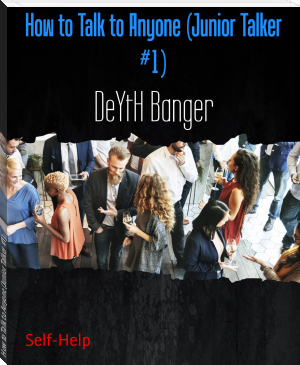
- Author: DeYtH Banger
Book online «How to Talk to Anyone (Junior Talker #1) by DeYtH Banger (phonics readers .txt) 📕». Author DeYtH Banger
If you want to succeed:
1) Less Give a Fuck
2) Less Wanting Validation
3) Less Caring
4) Less Being Nice
...
YOu need to start insulting and swearing in public places... if people turn mad don't give a fuck...
just continue... you are not there to be nice... to seek somebody to validate your opinion.
If you want to be Nice... you gonna end up in friendzone
If you give a fuck what others say and think and do you gonna suck as much as they do
If you start caring... you are going to be a retarded biach
If you start seeking validaiton like
People to accept you People to be nice to you People to like you People to do that and etc
....
This is going to stop your grow... if you want to grow and start improving your life stop giving a fuck!
Start Insulting... swearing... teasing
- --- Do it....
DO IT
DO IT
DO IT
Chapter 10.1 - And!? (Part 1) Most advice about how to stop a panic attack makes panic attacks stronger
Hello, my name is Noah Elkrief and in this video I’d like to talk to you about how to stop a panic attack. The reason why I’m making this blog post about how to stop a panic attack is because as I do one on one sessions with people, I often hear a lot of advice about how to stop panic attacks that actually makes panic attacks even stronger. In this blog post, I will show you how to come back to being in peace when a panic attack arises.
When you try to stop a panic attack, it gets stronger
If you look at your own experience, what happens when you try to stop a panic attack? Well, if you’re anything like the people that I work, with when you try to stop a panic attack, it gets worse. It gets stronger. We get more trapped in it. We become even more powerless when we try to stop it.
Why is that? Why does that happen? Well, in order to understand how to stop a panic attack, you first need to really understand why trying to stop a panic attack makes it worse. There are 5 reasons why this happens. I’m going to talk about each of the five reasons, and then I’m also going to give you an action step for what to do in order to stop creating the intensifying affect.
1) When you try to stop thinking about something, you think about it more
In order to make something clear for you, I would just like you to take a moment right now and try something. I want you to try as hard as you can to not think about oranges. Don’t think about what orange juice tastes like. Don’t think about what it’s like to peel an orange. Don’t think about the texture of the orange. Don’t think about what an orange feels like or looks like. Don’t think about the last time you had an orange. Don’t think about orange trees. Just don’t think about anything having to do with oranges. Can you do that for a moment? Give it a try. Don’t think about orange juices, oranges, juice anything. Close your eyes and do that for about 30 seconds.
How’s did it go? Probably not so good, right? You thought about oranges didn’t you? Because when you try not to think about something, that’s when you think about it. Trying not to think about something gives more energy to what you’re trying to not think about. You see how that happens?
Therefore, when you try to stop thinking the thoughts that are creating your panic attack, you’re just fueling it, giving more energy to the thoughts that are creating it. You can’t get rid of these thoughts by just trying to stop them and push them away. That’s not how the mind works. That just keeps the thoughts there, intensifies them, and makes the panic attack last longer.
Action step: Allow thoughts and feelings to be as they are
What happens when you try to stop thoughts and push them away? You can see from your own experience that it doesn’t work. What do you do about that? Give up that tactic. That’s what you do. Stop trying to get rid of the thoughts. Trying to get rid of the thoughts, fuels them. Instead, try something radical. Allow the thoughts to be there. Allow the feelings to be there. Paradoxically, this calms things down.

2) When you try to make negative thoughts positive, you create a battle in your mind
When you try to stop a panic attack, when you try to stop specific thoughts, what you do is you create a battle, a war, in your head. First, you think, “I’m scared. This situation is going to hurt me. Something bad might happen.” And then you try to convince yourself of the opposite by telling yourself “This situation won’t hurt me. That’s crazy. It’s okay. Nothing bad is going to happen.”
What happens when you do that is you now have two beliefs colliding; the negative beliefs that’s creating your feelings, and this positive belief that you are trying to convince yourself is true. But, since you are not addressing the reason why you have the negative belief in the first place, just telling yourself something positive is not going to get rid of the negative belief. Instead, it’s just creating a battle, a war in your mind. And that war creates even more tension.
Action step: Don’t try to make your thoughts positive, let them be
Instead of trying to convince yourself that your negative thought isn’t true, and creating a battle in your head, let the negative thoughts be there. Let them take over you. Let them say, “I’m going to die in this situation.” Let them say, “This situation is going to ruin me” or “this is bad” or “I’m going to get hurt” or whatever they’re saying. Let them say it. Don’t try to overlay some positive belief that the situation is good. That just creates a battle. Instead, let it be.

3) Believing that a panic attack is bad makes panic attacks more intense
Once we begin to have a panic attack, one of the first thoughts to pop up in our head is “This is bad, I don’t want to have panic attack”. It seems obvious that it’s bad to have a panic attack. But, as soon as you believe that your panic attack is bad, you are adding another layer of suffering on top of your panic attack, thus strengthening its intensity. So, is it bad to have a panic attack? Let’s take a moment and examine that a little closer. There’s a few ways to see that it might not necessarily be bad.
a) What are the facts, and what are my thoughts about the facts?
The first way to see that a panic attack is not bad is to separate the facts from our thoughts about the facts. The facts are that we have a specific sensation, a physical sensation in our body. That’s the facts. The thought on top of the fact says, “This sensation is good” or “This sensation is bad.” Right? When we have a tickle it says, “This sensation is good”. When have a bruise, it says, “This sensation is bad.”
But “bad” doesn’t exist as part of the facts. The sensation just is what it is. End of story. It’s not that it’s bad. It just is. You can’t see “bad” or touch the “badness” of a feeling. The feeling exists in your chest or stomach, but the “badness” exists only as a thought in your head.
When you start to have a panic attack, go to the physical sensations itself. Describe the sensations to yourself. Mind will want to say something like “it feels like there is a 1000 pounds of pressure on my chest”. But, stop, come back to the facts. There is some pressure on your chest, but it is nothing like a 1000 pounds in reality. As long as you stick with the facts, you will remain in peace regardless of the sensations your body is experiencing.

b) Can’t you be in peace in the midst of discomfort in your body?
I’m sure you’ve had stomach aches from time to time. In the midst of a stomach ache, it seems that the stomach ache is creating your suffering. It’s making you unhappy. But if while you have the stomach ache, you start to do something fun, eat your favorite dessert, watch an entertaining movie, or watch a funny youtube video, will you still be unhappy? No.
When an activity takes your full attention, thus distracting you from your thoughts about your stomach ache, all of a sudden you are no longer unhappy. The stomach ache may still be there, but since you are distracted from your thoughts about, you’re able to be in peace even in the midst of this physical sensation.
The same is true with a panic attack. It’s just a physical sensation. In the midst of any sensation, a cut, bruise, stomach ache, we can still be in peace.
So, when you have a panic attack, just notice the sensations. Let the sensations be there and notice that it doesn’t affect your peace. We tend to think that tension or anxiety is the opposite of peace. But those are just physical sensations. They can’t touch our peace. They don’t take away our peace unless we confuse them to be who we are. Unless we confuse the tension to be, “It’s MY tension. I am in tension.” It’s just sensations in the body. So let them be there and just notice them.
c) Do you know what all of the future effects are of this feeling in your body?
Imagine you break your leg, okay? When you have that pain, it seems so bad. “The pain, I don’t like it. It’s bad that I broke my leg.” That’s what we would assume, right? When we break our leg we’re thinking of all the bad effects and that it’s bad to be in pain. These thoughts make us feel sad.
But now imagine that while you were in the hospital waiting for surgery, you met somebody the love of your life. While you were off from work, you realized that your job wasn’t right for you and you found a new job that you love much more. While you were off from work, you spent so much time reading self help books that you became much happier.
Six months later, if you found yourself much happier than you were
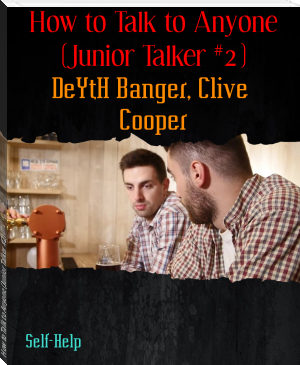
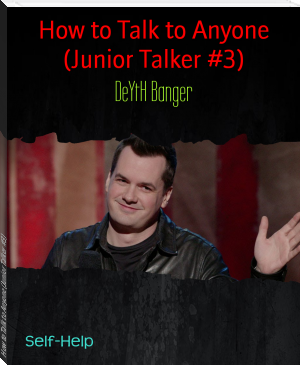
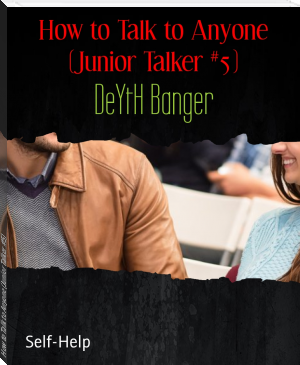
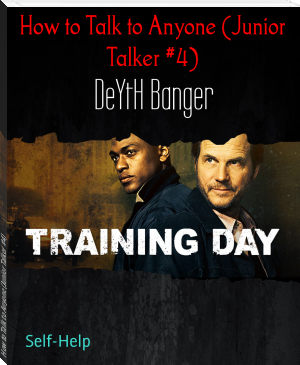

Comments (0)